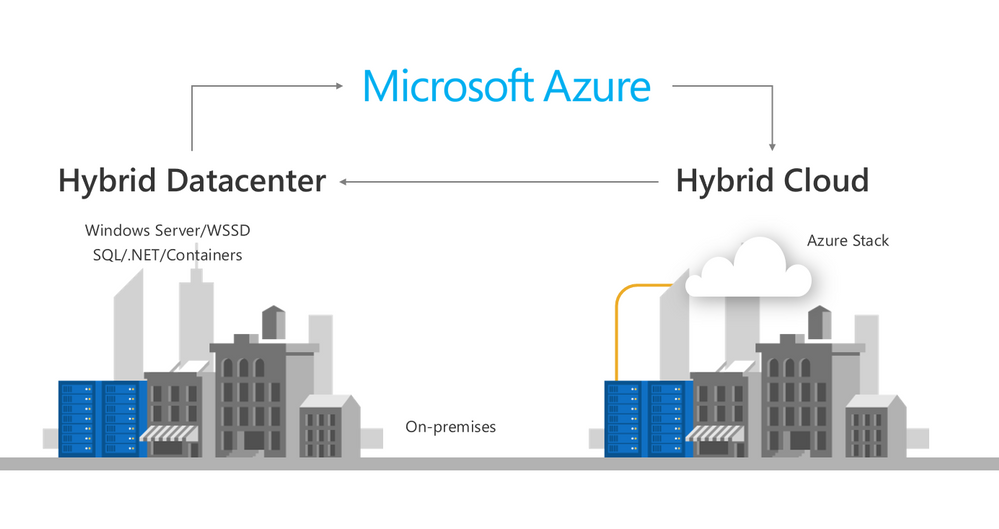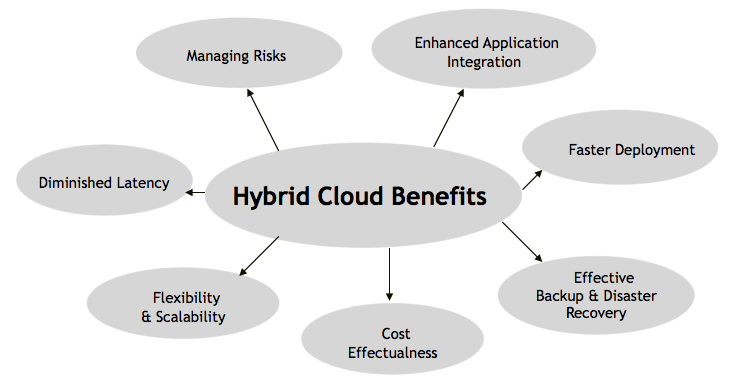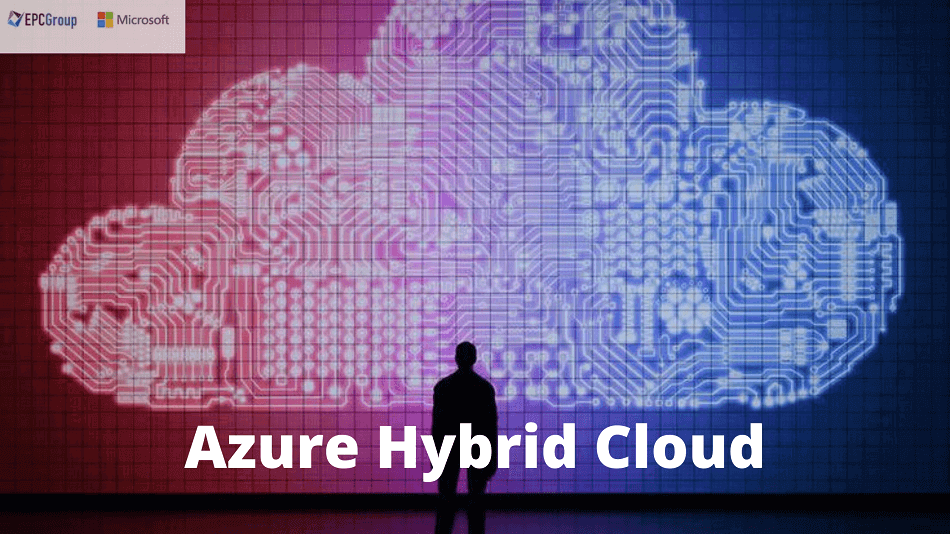When moving to a hybrid cloud solution, companies have difficulty migrating on-premises data and applications to the cloud. This process can be complicated, especially if some on-premises services and applications are part of your business’ IT strategy.
Your on-site data center may benefit from the rich hybrid cloud management capabilities offered by the Azure cloud. These include networking tools, single sign-on (SSO) and identity management tools, hybrid storage devices that you may install on-premises, and migration and networking tools.
Businesses have embraced cloud computing quickly in recent years as more managers see the value in hosting services and apps on the Azure platform. However, while the transition is worthwhile, it can be challenging when your company’s IT strategy includes on-premises services and apps.
Why Should You Be Using A Hybrid Cloud?
Hybrid clouds are a great way to get the most out of your cloud computing environment while maintaining control over data storage. They help change your pitch when necessary and help you avoid storing all of your data in a single public cloud.
These benefits make hybrid clouds an ideal solution for organizations that need to share information with multiple stakeholders and locations. For example, a company may have different departments in different cities around the country, but it needs to share a large amount of data. With a hybrid cloud, each department can access their portion of the data from any location, enabling them to perform more efficiently and successfully together regardless of distance or time zones.

How Azure Hybrid Cloud Data Centers Improve Enterprise Solutions?
Cloud-native apps are one of the most well-liked uses for Azure Hybrid Cloud. This process allows you to take advantage of scalability, portability, and other benefits. It also increases your company’s agility by allowing you to work more efficiently across multiple data centers.
This process can be done by moving an application from one cloud environment to another. For example, if you need faster access times for a critical application, you can move it over to Azure Hybrid Cloud while keeping its data in the original data center. This feature allows both environments to run simultaneously without downtime or functionality change.
You may support your apps in a variety of ways utilizing the Azure hybrid cloud, such as:
- These data centers contain on-prem and cloud solutions, including Azure and Microsoft 365. They allow you to run hybrid apps in-house while using the cloud benefits you’re familiar with. This benefit includes database availability groups (DAGs), high availability (HA) clusters, automatic scale-up and scales down, high resource utilization, auto-scaling groups, elastic pools, and more!
- This process might be essential to thinking about moving. Your apps to the cloud if this sounds like something that might be advantageous for your company. With the help of the Azure Hybrid Benefit program, you can accomplish this securely.
- Azure Hybrid Cloud Data Centers may enhance corporate solutions by supporting edge and disconnected scenarios. You can ensure that everyone is still linked regardless of their internet connection.
- Azure offers cloud-native capabilities for managing DevOps workflows, enabling DevOps pipelines. This capability enables you to gradually and continuously integrate and release your software by integrating many of the technologies you presently use.

Benefits Of A Hybrid Cloud Approach From Microsoft Azure
A hybrid cloud is an approach to managing your IT infrastructure that combines on-premises servers with hosted services from a third-party provider (such as Microsoft Azure). There are many benefits to a hybrid cloud strategy, including:
- Moving My Website To The Microsoft Azure Cloud
As a small business owner, you wish to ensure that your website is always up and running. When the cloud comes into play, it makes this possible. With Microsoft Azure, you can now run your website on their cloud to get access to resources, security, and availability that every business needs to thrive.
- Build an Azure Hybrid Network to Enhance Security
Building an Azure hybrid cloud environment grants you access to one of the largest networks in the world where you can benefit from a range of features, including using Azure ExpressRoute to optimize connections, securing them with Azure Firewall, and plenty more that can take your IT strategy to the next level.
- Protect Your Azure Infrastructure With Standard Security Measures
With suitable security measures in place, it’s possible to protect your cloud environments from unauthorized access and ensure that the content is always secure.
- Extend on-premises resources to Azure
Microsoft Azure is an excellent option for organizations looking to extend their existing on-premise resources to the cloud. With Azure, you can use your existing hardware and software tools to run your services in the cloud, and with Microsoft’s commitment to open source technology, you can also take advantage of a wide variety of open source solutions.
The public cloud has been explicitly designed with hybrid infrastructures in mind; therefore, the deployment and management of hybrid cloud architecture are more accessible than ever.
- Increased Revenue and Reduced Costs with Microsoft Azure
Microsoft Azure is a cloud platform that allows you to take advantage of the best of both worlds. With a hybrid cloud model, you can quickly move your business’ IT strategy from on-premise to the cloud.
Azure can take your hybrid cloud model to the next level. With extensive functionality, migration and networking tools, and many more features, your business’s IT strategy will surely benefit from this cloud platform.
How To Set Up Your Hybrid Cloud Four Different Architectures
Depending on business demands and current infrastructure, you may choose several designs to build a hybrid cloud environment.
Created Hybrid Infrastructure Using the Azure Stack
We’ll also discuss how hybrid identity management works with Azure Stack. Hybrid identity management enables users to use their existing identities for both on-premises resources and services provided by Azure Stack. Hybrid identity management also provides additional capabilities such as single sign-on (SSO) into Azure Stack from any device, regardless of whether it is connected to an on-premises network or not; automatic provisioning; secure access to data; backup of user credentials; end-to-end encryption when moving data between on-premises resources or services provided by Azure Stack.
Use Azure Data Factory to Create a Hybrid Cloud
You can use Azure Data Factory to create a hybrid cloud using a data warehouse architecture. Data Factory enables you to create, schedule, and orchestrate data processing workflows across environments. In addition, it provides features for advanced analytics, dashboards, and operational reports to help you manage and monitor these workflows.
Conclusion
The transition to cloud services is well worth it, but you must consider some things. Azure offers seamless migration tools and storage solutions so that you can access your data both in and out of the cloud. Because eventually, this all comes down to how your company conducts business. EPC Group’s Azure Consultant IT Services, we can help you decide which services are appropriate for your business. Whether you are striving to simplify deployment or build a new foundation for your company, EPC Group is professional and competent to continue providing guidance.










